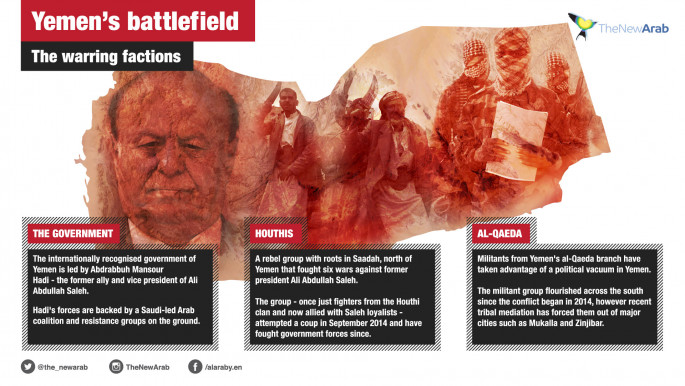US cuts military advisers to Saudi-led coalition in Yemen
The reassignment of personnel, around June, came because "there was not the same sort of requests coming in for assistance", Fifth Fleet spokesman Lieutenant Ian McConnaughey told AFP from its base in Bahrain.
Saudi Arabia has faced repeated criticism from rights groups over civilian casualties in its 17-month campaign against rebels in Yemen.
US officials have regularly urged their major Middle East ally to avoid harming non-combatants.
But McConnaughey said the US reassignment of personnel does not affect their ability to support the Saudis and is more efficient.
"That's the main reason behind it, and it's based on the amount of requests that we receive from the Saudis."
He said the United States now has "a limited number, less than five, that are working directly on the advisory cell that we have here" in Bahrain.
That number is down from about 45, in Bahrain and Saudi Arabia, at its peak.
"If the need arises," the team directly assigned to coalition cooperation could be increased, he said.
The joint cell was established around the start of coalition operations in March last year, McConnaughey said.
 |
|
The Arab coalition began air raids and later sent in ground forces to support the internationally recognised government of President Abedrabbo Mansour Hadi after the Houthi rebels and their allies overran much of Yemen.
Saudi Arabia says the rebels are backed by its Shia regional rival Iran.
The coalition said it uses highly accurate laser and GPS-guided weapons, many supplied by the US, and verifies targets many times to avoid civilian casualties.
Yet allegations of strikes on civilian facilities have continued.
Human Rights Watch said on Friday that US Secretary of State John Kerry should raise concerns with Riyadh about "repeated violations of the laws of war by the Saudi-led coalition in Yemen that have killed many civilians".
Paris-based Doctors Without Borders (MSF) has accused the coalition of "indiscriminate bombings" and said it had lost confidence in the alliance's ability to prevent fatal attacks on its premises.
A US Defence Department spokesman said on Saturday that Washington's support for the coalition was not a "blank check".
"The cooperation that we've extended to Saudi Arabia since the conflict escalated again is modest and it is not a blank check," Adam Stump said.
"At no point did US military personnel provide direct or implicit approval of target selection."
The coalition stepped up airstrikes this month after UN-mediated peace talks between the rebels and the internationally backed government were suspended.
The rebels have retaliated with cross-border attacks.
The UN says more than 6,500 people, mostly civilians, have been killed since last March and more than 80 percent of the population needs humanitarian aid.





 Follow the Middle East's top stories in English at The New Arab on Google News
Follow the Middle East's top stories in English at The New Arab on Google News


